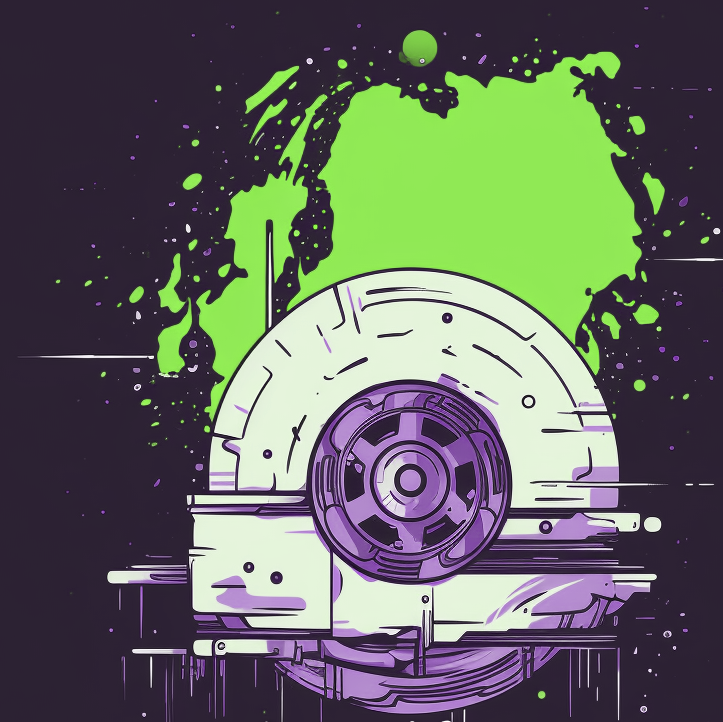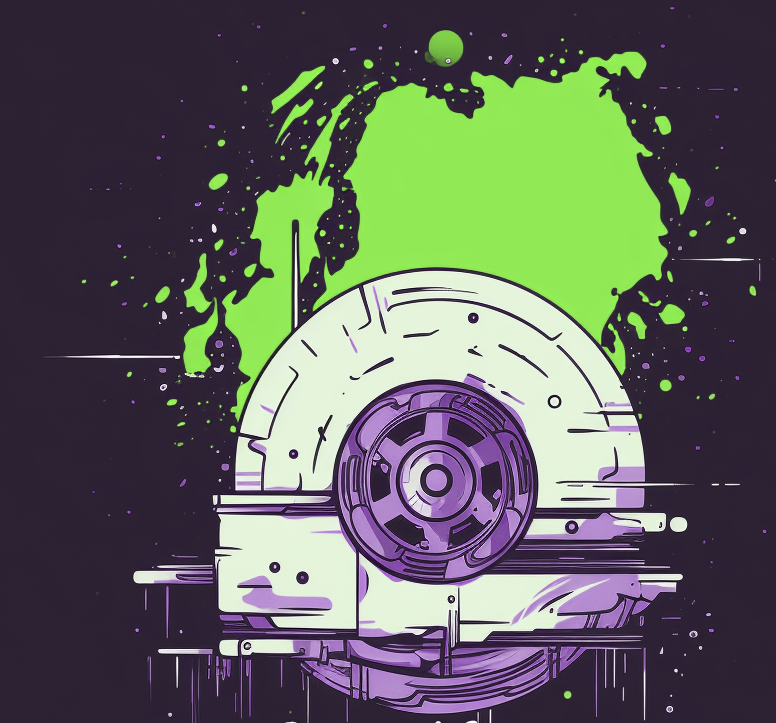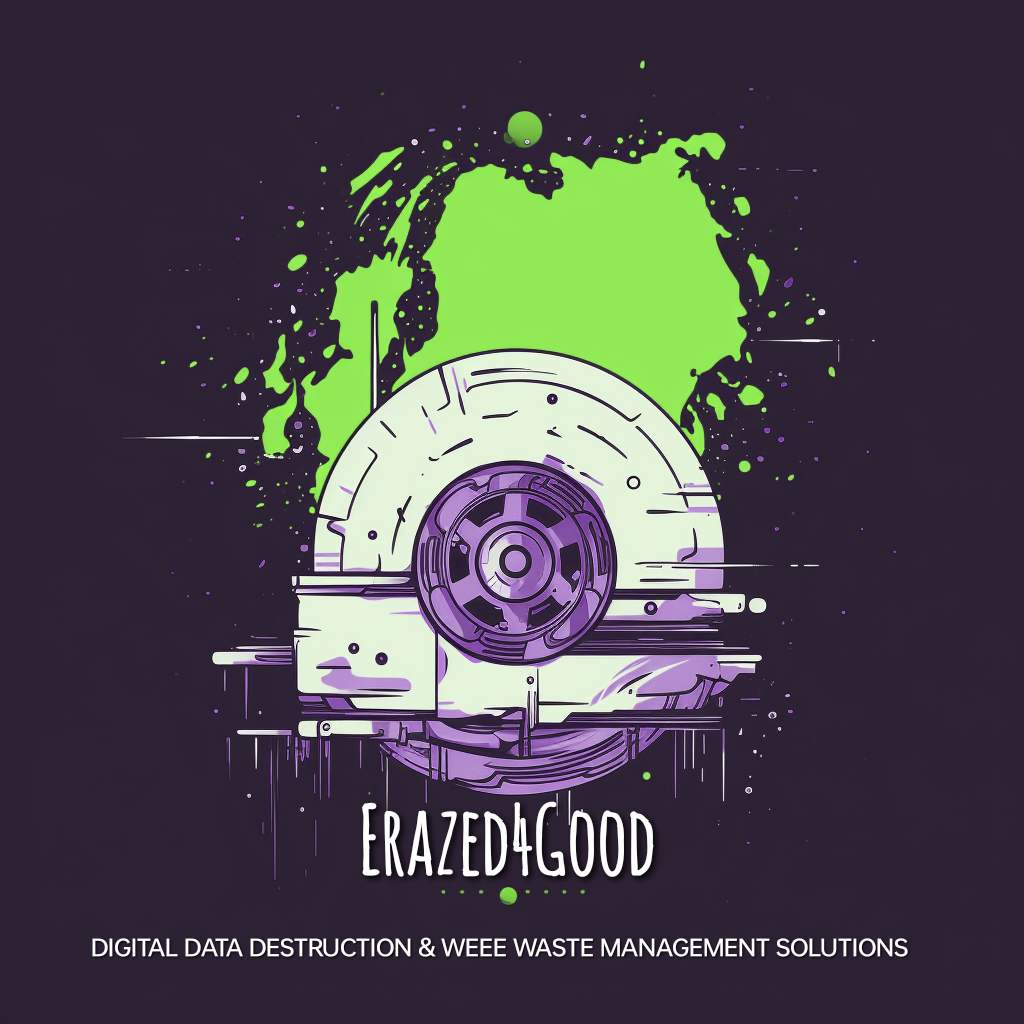Left Equipment and Data Protection
Introduction
Landlords often face various challenges when tenants vacate their properties. Among these challenges is dealing with items left behind by previous tenants, including IT equipment such as computers and devices with hard drives. Many landlords might not realize that these seemingly harmless items can pose a significant risk regarding data protection and GDPR compliance.
In this guide, we’ll explore why left IT equipment is a potential danger for landlords regarding GDPR data protection. We’ll also discuss the responsibilities landlords must consider when taking possession of such equipment and the steps they can take to mitigate these risks.

The GDPR Landscape
The General Data Protection Regulation (GDPR) is a comprehensive data protection law that governs how personal data is collected, processed, stored, and protected within the European Union (EU) and the European Economic Area (EEA). GDPR came into effect in May 2018 and introduced stringent requirements for organizations handling personal data.
The Landlord’s Dilemma
- Ownership vs. Responsibility
When a tenant leaves IT equipment behind, landlords must consider a crucial distinction: ownership versus responsibility. Even though the equipment might belong to the tenant, the responsibility for the data on those devices now falls on the landlord as the property’s new owner or caretaker.
- Data Protection Obligations
Under GDPR, any entity that processes personal data must adhere to strict data protection principles. This includes safeguarding the confidentiality, integrity, and availability of personal data. Landlords are not exempt from these obligations when they inadvertently gain access to tenant’s IT equipment.
Risks Associated with Left IT Equipment
Failure to securely manage or dispose of IT equipment can result in data breaches. If unauthorised parties expose or access personal data, landlords could be held liable for GDPR violations and face substantial fines.
- Financial Consequences
GDPR violations can lead to hefty fines, significantly impacting a landlord’s finances. Depending on the severity of the breach, fines can reach up to €20 million or 4% of the company’s global annual revenue, whichever is higher.
- Reputational Damage
A data breach can also damage a landlord’s reputation. Word of a data breach can spread quickly, potentially affecting the landlord’s ability to attract future tenants or maintain a positive image in the rental market.
Mitigating Risks
- Develop a Policy
Landlords should establish clear policies and procedures for handling abandoned IT equipment, especially those containing hard drives. This policy should address how data will be handled, including secure erasure or destruction of data.
- Seek Legal Advice
When faced with left IT equipment, landlords should consult legal experts who specialize in data protection and GDPR compliance. Legal advice can help landlords navigate the complexities of data protection laws.
- Engage IT Professionals
Consider involving IT professionals who can securely erase or dispose of the data on abandoned devices. This ensures compliance with data protection laws and minimizes the risk of data breaches.
- Document the Process
Landlords should maintain detailed records of their actions regarding left IT equipment. This documentation can prove compliance with GDPR regulations and due diligence.

Landlords must recognize that abandoned IT equipment represents more than just a nuisance; it poses real risks to GDPR compliance and data protection and cusotmer safety. Taking possession of the building, changing the locks means the Landlord has acknowledged such equipment and so this means they are accepting responsibility for the data contained within. By implementing clear policies, seeking expert advice, and engaging IT professionals, landlords can navigate this GDPR minefield and protect both themselves and their tenants from data breaches and legal consequences.
UK Law Society
The Landlords Role
- Educate Tenants
Landlords can also play a proactive role by educating tenants about their responsibility to remove personal data from IT equipment before vacating a property. Include clauses in rental agreements that emphasize data protection responsibilities.
- Data Protection Impact Assessments
For larger property management companies, it may be worthwhile to conduct Data Protection Impact Assessments (DPIAs) to identify and mitigate potential data protection risks. DPIAs can help landlords understand the full scope of their responsibilities.
- Data Protection Training
Consider providing data protection training for property management staff to ensure they are aware of their obligations under GDPR. Training can help prevent accidental data breaches and ensure compliance so incidents like giving away old equipment to new tenants or selling it without proper certification does not happen.
- Regular Audits
Perform regular audits of abandoned equipment storage areas to ensure compliance with data protection policies. Regular checks can identify potential issues before they escalate into major problems.
In conclusion, left IT equipment can be a significant GDPR risk for landlords, and they must be vigilant in managing this aspect of property management. By establishing clear policies, seeking legal and IT expertise, educating tenants, and implementing robust data protection practices, landlords can protect themselves, their tenants, and their reputation from the potential dangers associated with abandoned equipment and the sensitive data it may contain. Properly addressing these concerns can help landlords navigate the complex landscape of GDPR and data protection while providing a secure and compliant environment for tenants.
Good Business Guide

Hidden dangers of information Loss & Safeguarding Child & Vulnerable Person Data
Child protection is a crucial component of data protection, especially in cases where tenants work in fields like education, healthcare, or social services. Landlords must recognize that IT equipment left behind by such tenants can contain highly sensitive information about children and vulnerable individuals. This data must be handled with the utmost care.
To address this aspect of data protection, landlords must:
- Highlight Data Security Obligations: Lease agreements should clearly state that tenants are responsible for securely removing any data related to children or vulnerable persons from their IT equipment before vacating the property. This is not only a legal requirement but also an ethical obligation.
- Provide Guidance: Offer guidance to tenants working in fields involving children or vulnerable individuals on how to erase, securely store, or transfer sensitive data from their devices before moving out.
- Regular Data Checks: Conduct periodic checks of abandoned IT equipment, paying special attention to those used by tenants working in child-centric professions. Ensure that no data relating to minors or vulnerable individuals is left behind.
- Document Handling: Document your procedures for handling and disposing of any equipment that contains sensitive data. Ensure compliance with GDPR and child protection regulations in every step of the process.
Seek Legal Counsel
In situations where child protection and data protection intersect, seeking legal counsel can be invaluable. Legal experts can help landlords navigate the complexities of child protection laws and GDPR. They can also provide advice on crafting lease agreements that address data protection for minors and vulnerable individuals specifically.
Stay Updated
Data protection laws, including those related to child protection, are continually evolving. It’s vital for landlords to stay informed about changes in legislation and adapt their policies and procedures accordingly.
Landlords must recognize that abandoned IT equipment represents more than just a nuisance; it poses real risks to GDPR compliance and data protection. Taking possession of such equipment means accepting responsibility for the data contained within. By implementing clear policies, seeking expert advice, and engaging IT professionals, landlords can navigate this GDPR minefield and protect both themselves and their tenants from data breaches and legal consequences.




No responses yet